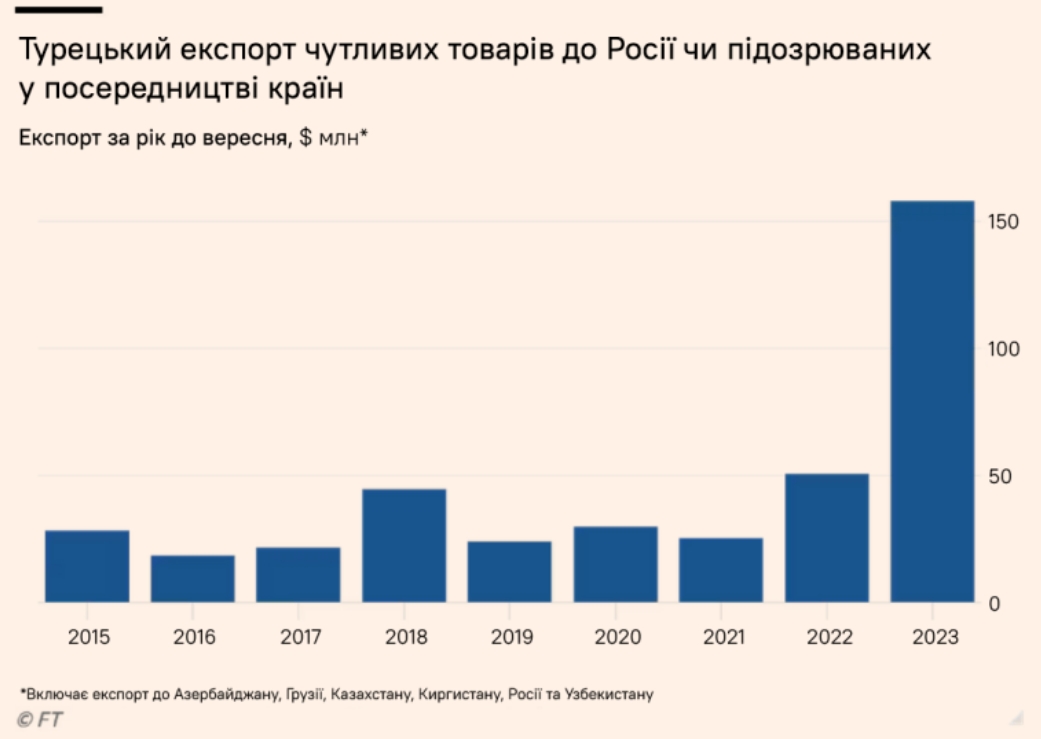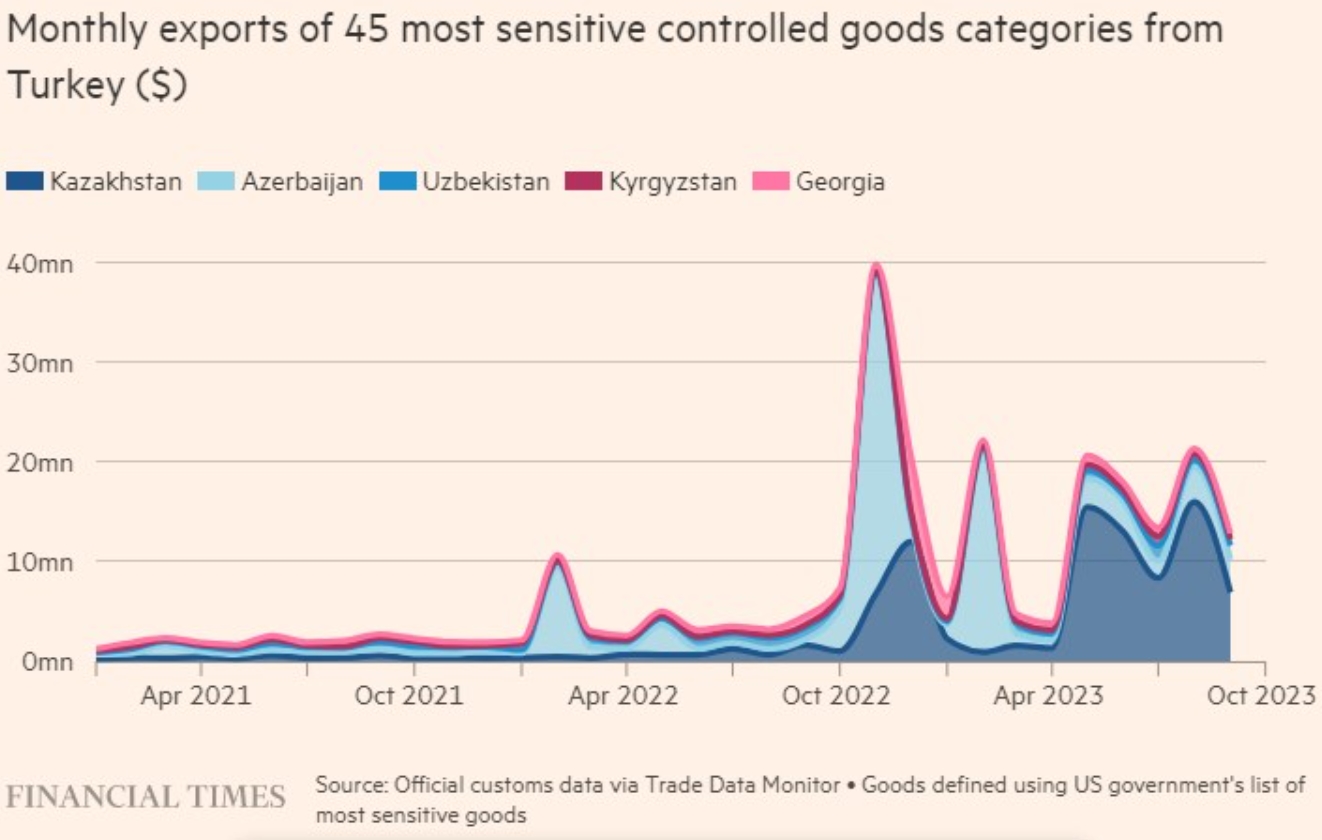Surge in Turkish Dual-Use Exports Raises Alarms
27 November, 2023 Illustrative photo on the topic of transporting goods from Turkey. Photo credits: Shutterstock Exports of dual-use goods from Turkey to Russia have grown rapidly.
According to The Financial Times, Turkey's exports of goods to Russia have soared this year. The export raises concerns among the U.S. and its allies that the country is acting as a conduit for sensitive items from their own manufacturers. Brian Nelson, U.S.
Treasury under-secretary for terrorism and financial intelligence, will visit Istanbul and Ankara this week, demonstrating how this trade has become a priority in Washington. During this visit, he is set to discuss efforts to prevent, disrupt, and investigate trade and financial activity that benefits the Russian effort in its war against Ukraine.
 Infographic: Dynamics of trade in dual-use goods between Turkey and Russia.
Infographic: Dynamics of trade in dual-use goods between Turkey and Russia.
Photo credits: Financial Times
It will be Nelson's second trip to Turkey this year, and it comes amid indications that some dual-use parts--identified by the U.S. and its allies as being of particular value to the war--are being transported directly to Russia even when they have been labeled as going to another country. Efforts to cut off this ghost trade to Russia have been complicated as the items have both commercial and military applications. For example, in the first nine months of 2023, Turkey reported £158 million in exports of 45 goods the U.S. lists as "high-priority" to Russia and five former Soviet countries suspected of acting as intermediaries for the Russian Federation.
That was three times the level recorded over the same period in 2022, when the war in Ukraine began. At the same time, the average figure for 2015-21 was £28 million. The 45 categories of goods, which include items such as microchips, communications equipment, and parts such as telescopic sights, are subject to U.S., EU, Japanese, and UK regulations.
But these can be circumvented by companies using middlemen structures to disguise their ultimate destinations. Turkey's imports of high-priority goods from G7 countries are up more than 60% so far this year compared with the same periods between 2015 and 2021 to nearly £500 million. Turkey, along with the United Arab Emirates, often serves as an intermediary destination for Russian entities seeking to exploit multistage import routes to get around controls.
This country is especially often used to purchase European goods. Official data from Turkey showed a surge in declarations of exports of high-priority goods to the ex-Soviet nations of Azerbaijan, Georgia, Kazakhstan, Kyrgyzstan, and Uzbekistan, but those countries' statistical agencies have not recorded a matching rise in imports.
 Infographic: dynamics of trade in dual-use goods.
Infographic: dynamics of trade in dual-use goods.
Photo credits: Financial Times
According to U.S. and EU estimates, Russia uses critical goods in its cruise missiles, drones, and helicopters. Washington and its European allies have called on Turkey to take steps to limit the trade. The U.S.
Treasury Department also flagged the issue this month in its latest round of sanctions on Russia.
Turkey has retained strong diplomatic and trade links with Russia, while also pledging not to help Russia circumvent Western export controls.
As previously reported, in October, the illegal export scheme of semiconductors, integrated circuits, and other electronic components for the Russian military industry was exposed in New York.